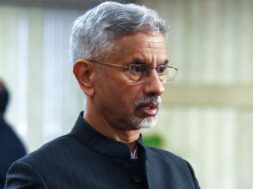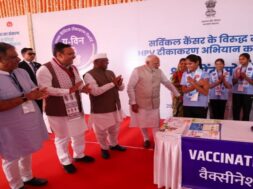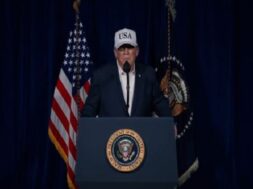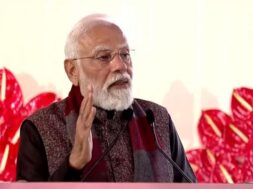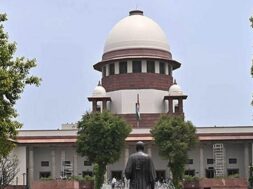
Manas Dasgupta
NEW DELHI, June 15: Even as the government for the first time on Tuesday confirmed one death due to vaccination, the “Covaxin” manufacturer Bharat Biotech justified differential pricing to the private players to offset part of the cost pointing out that the government-fixed price was non-sustainable in the long run.
A 68-year-old man, fully vaccinated, died on March 31 and it has been labelled as “vaccine product related reaction” in a report assessing 31 severe cases reported since the government launched the vaccine drive in January.
The report was by the National Adverse Events Following Immunization (AEFI) committee under the Union Health Ministry. Of the 31 cases, 28 are deaths. But still “overall the benefits of vaccination are overwhelmingly greater than the small risk of harm,” the health ministry said.
“This is the first death where causality has been established, with vaccine resulting in an anaphylaxis reaction. But compared to the overall numbers, only a small number had a severe reaction. 31 cases were investigated and one death was due to vaccine, and among anaphylaxis cases, only two were found to be product-related. Most anaphylaxis reactions are managed,” said NK Arora, Advisor, National AEFI Committee.
Of 31 cases, three cases were reported as “Anaphylaxis” or any severe reaction experienced by the person half an hour after the shot. Two of them were hospitalized and discharged but one died.
Eighteen cases were found to be unrelated to vaccines and classified as “coincidental”. There were two cases of hospitalisation linked to vaccines.
In seven cases, there is no definite evidence to link the deaths to vaccines. In the case of two cases, there is not enough information.
In Hyderabad, Bharat Biotech said the rate at which it was supplying “Covaxin” to the government was “not sustainable in the long run” and a differential price in the private markets was justified to “offset parts of the costs”.
In a detailed statement over the pricing of “Covaxin”, the manufacturer said despite the differential pricing, the company was only realising a weighted price of “less than” Rs 250 per dose. It said a bulk of its supplies would continue to go to the government, which has been buying the vaccine at Rs 150 per dose, and only 25 per cent would be channelised to private hospitals.
“As directed by the government of India, less than 10 per cent of our total production of Covaxin to date has been supplied to private hospitals, while most of the remaining quantity was supplied to state and central governments. In such a scenario, the weighted average price of Covaxin for all supplies realised by Bharat Biotech is less than Rs 250 a dose. Going forward, approximately 75 per cent of the capacity will be supplied to state and central governments, with only 25 per cent going to private hospitals,” the company said in a statement.
Bharat Biotech said it had so far invested over Rs 500 crore “from its own resources” for product development, clinical trials and setting up of manufacturing facilities, and the price at which the government was buying the doses was not commensurate to the investment.
“The supply price of Covaxin to the government of India at Rs 150 per dose is a non-competitive price and clearly not sustainable in the long run. Hence, a higher price in private markets is required to offset part of the costs,” it said, giving examples of other pharmaceutical products which are available at differential pricing.
“There are live examples of such pricing policies where Human Papillomavirus vaccine is priced for GAVI supplies at approximately $4.5 (about Rs 320) per dose, but is also available in the private market at about Rs 3,500 per dose. Rotavirus vaccines are supplied to the government of India at about Rs 60 per dose, but it is also available in the private market for Rs 1,700 per dose. The prices of Covid-19 vaccines internationally have varied between $10 and $37 (about Rs 730 to Rs 2,700) per dose,” it said.
The company also said the procurement of vaccines by private hospitals was only an additional choice. “Unlike most medicines and therapeutics, vaccines are provided free of cost by the government of India to all eligible Indian citizens. Thus, the procurement of vaccines by private hospitals is optional and not mandatory, albeit it gives a choice to citizens who are willing to pay for better convenience. In our view, the question of product pricing is only of extraneous interest to all concerned, especially when the same vaccine is made available free of cost,” the company said.
Meanwhile, in a setback to AstraZeneca’s efforts to develop a drug for Covid-19, a study has found that its antibody cocktail was only 33% effective at preventing COVID-19 symptoms in people who had been exposed to the virus.
The trial of 1,121 adult volunteers looked at whether the long-acting antibody combination could protect people who had recently been in contact with the SARS-CoV-2 virus in places like care homes. The company said it was running other studies of the medicine that could help clarify the findings.
The outcome was a blow to Astra for a drug that was hoped to be a bright spot in the company’s pandemic efforts following the mixed success of its vaccine with the University of Oxford. Other drug makers such as GlaxoSmithKline Plc have had some success in getting similar therapies through clinical tests and approved for people who are at risk of severe disease or can’t get vaccinated.
AstraZeneca-Oxford University developed vaccine is being widely used in India being manufactured under license by the Serum Institute of India (SII) in the band name of “Covishield.”
“There is still a significant need for prevention and treatment options for certain population, including those unable to be vaccinated or those who may have an inadequate response to vaccination,” said Myron Levin, the study’s lead researcher and a professor of medicine at the University of Colorado.
The Astra medicine attracted interest even before it could prove its efficacy. The US has ordered up to 700,000 doses of the medicine for delivery in 2021, while the UK was already reconsidering an earlier order for one million.
The study, conducted in the US and UK, showed 23 volunteers who got the cocktail developed symptomatic COVID-19 following exposure to the disease, compared with 17 cases in the placebo group, according to a statement Tuesday. Twice as many participants got the antibody, but the difference between the two groups wasn’t considered statistically significant. Further analysis showed the drug had some impact in preventing disease for those who weren’t infected at the time of dosing.
Volunteers who became infected up to a week after taking the drug were 51% less likely to develop symptoms, the company said. That climbed to 92% if the patient didn’t record infection until more than a week after the injection. All participants had a negative antibody test when dosed to exclude prior infection.
The trial, named Storm Chaser, is one of six advanced-stage studies Astra is running to test the medicine. Another one called Provent, looking at whether the cocktail can prevent infection in people at high risk of catching Covid or with compromised immune systems, is also expected to report results soon.
Antibody drugs are viewed as a way to protect people such as cancer patients whose immune systems may not respond as well to vaccines. They may also provide much-needed treatments as countries encounter new variants and waves of infections amid varying speeds of vaccine rollouts. A number of companies are testing antibody drugs as measures of both prevention and treatment.
Several antibody treatments are already on sale. Glaxo and Vir Biotechnology Inc. received US emergency-use authorization for their product last month after it showed it could keep at-risk patients from worsening. Eli Lilly & Co.’s authorization for an antibody treatment was revoked in April amid questions over its effectiveness, but the company then had the product cleared for use in combination with another antibody. Meanwhile, the centre on Tuesday has clarified that the second dose of “Covishield” could be administered to people travelling abroad for work, education or sports before the prescribed 84 days interval but not earlier than at least 28 days after the first dose.

